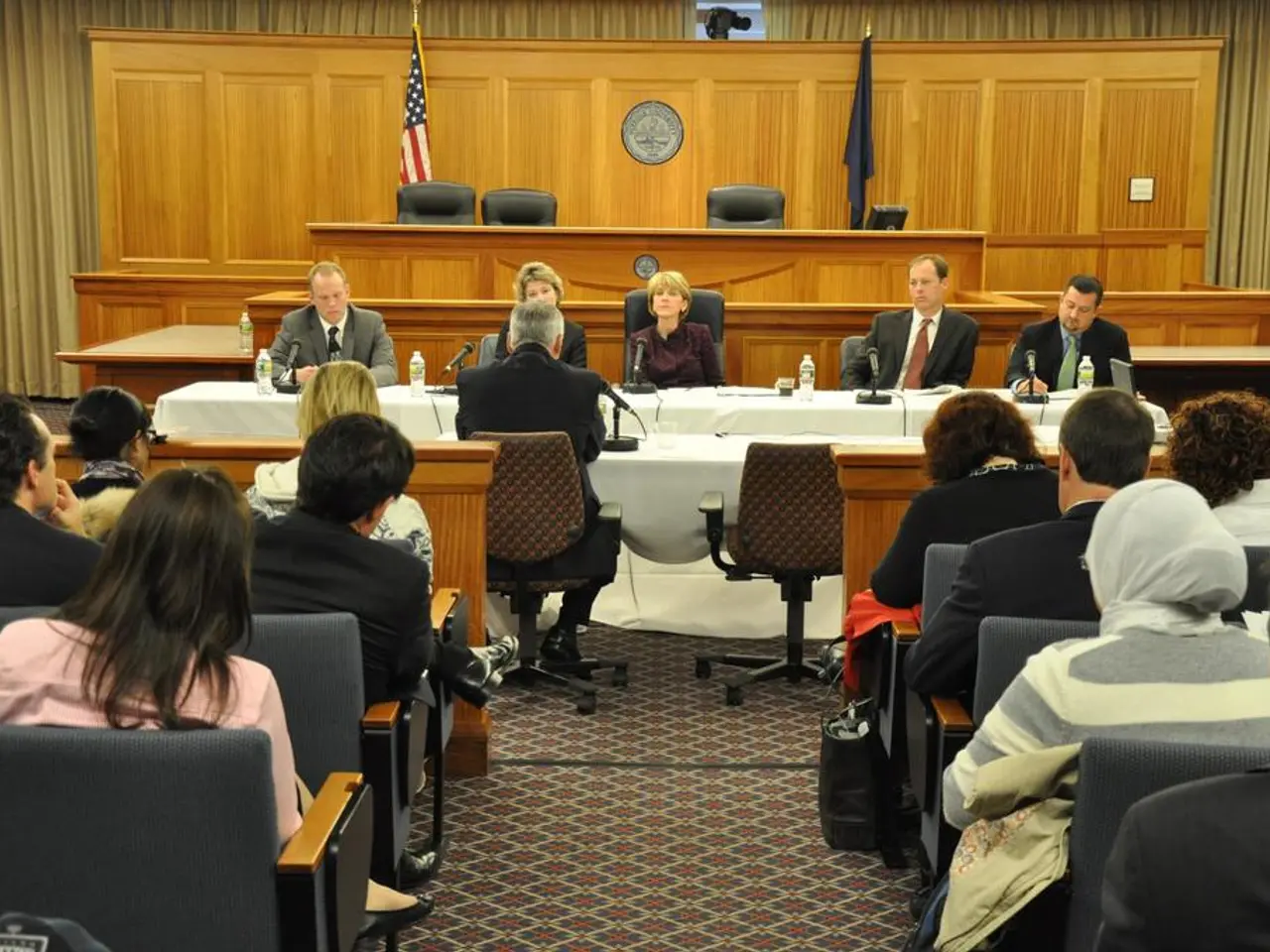Germany's loyalty: Less than a sixth would stand for the country regardless
Germany's stance towards military service in defense emergencies remains ambiguous and cautious, reflecting the country's historical sensitivity to militarization. A recent survey by Forsa sheds light on the public's willingness to defend their nation.
The survey, conducted among approximately 1,000 citizens, revealed that about 16% of Germans are definitely ready to take up arms in a defense emergency, while another 22% are likely to do so. However, among women, 72% would probably not or definitely not be ready to defend Germany with a weapon, according to the survey.
The survey did not specify the type of defense emergency or military attack it was referring to. Nevertheless, it's important to note that the survey did not provide information on the level of readiness of Germans to defend Germany if it is attacked, only their likelihood of considering it necessary to come to the aid of another NATO member.
Despite this ambivalence, there has been a notable increase in voluntary enlistment in the Bundeswehr, partially motivated by security concerns linked to Russia and the war in Ukraine. The German government aims to recruit significantly more soldiers through voluntary service, improving conditions and pay rather than immediately reinstating conscription.
Regarding the perceived chances of a military attack on Germany in the next five years, the survey did not provide direct public or official polling data. However, more than one in four Germans (27%) consider a military attack on Germany within the next five years as very or rather likely. This cautious concern, rather than outright expectation, is evident in the government's and military's preparations for heightened security demands amid a changing European security environment, especially given the tensions involving Russia.
It's worth noting that the survey did not provide information on the consequences or outcomes of a defense emergency or military attack on Germany. Additionally, the survey did not specify the timeframe in which the potential military attack would occur beyond the next five years.
The survey did not provide specific information about the demographics of the respondents. However, it's crucial to understand that while risks are recognized at the policy level, the general public does not broadly anticipate imminent military aggression against Germany itself within the near term.
In conclusion, while the German public's willingness to defend their nation in a military emergency is cautious, there are signs of increased awareness and preparedness. The government's focus on voluntary service and the gradual improvement of military conditions suggest a strategic approach to strengthening the armed forces, without immediately reinstating conscription.
The government's aim to recruit more soldiers through voluntary service indicates a potential shift in Germany's military preparedness, despite the public's cautious stance towards defense emergencies. The survey's findings show that politics, particularly the military and defense sector, remain a topic of general-news interest.







